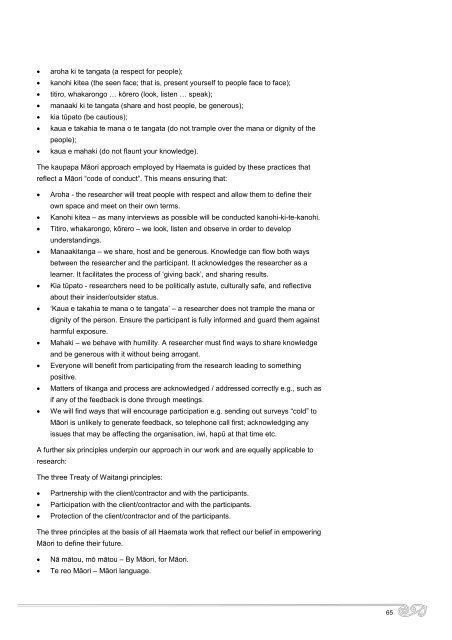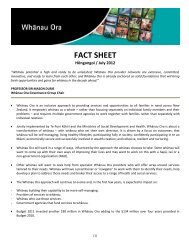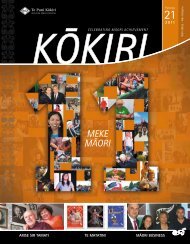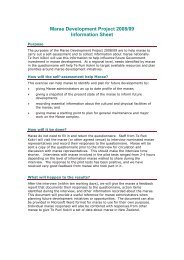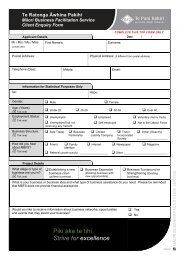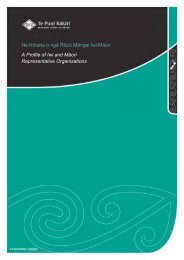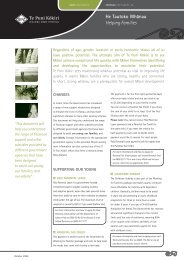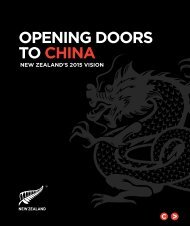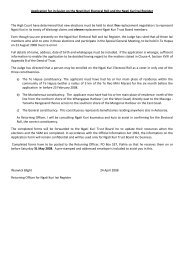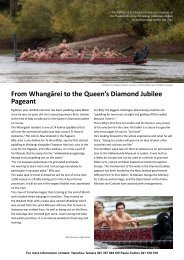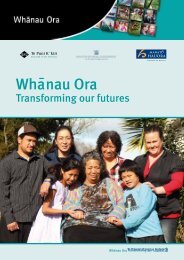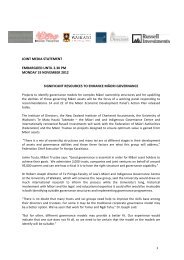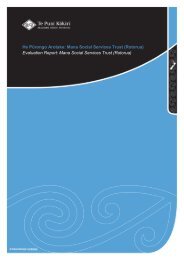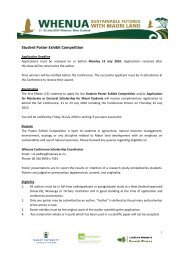Kia eke ki ngÄ Taumata, kia Pakari ngÄ Kaiako He ... - Te Puni Kokiri
Kia eke ki ngÄ Taumata, kia Pakari ngÄ Kaiako He ... - Te Puni Kokiri
Kia eke ki ngÄ Taumata, kia Pakari ngÄ Kaiako He ... - Te Puni Kokiri
Create successful ePaper yourself
Turn your PDF publications into a flip-book with our unique Google optimized e-Paper software.
• aroha <strong>ki</strong> te tangata (a respect for people);• kanohi <strong>ki</strong>tea (the seen face; that is, present yourself to people face to face);• titiro, whakarongo … kōrero (look, listen … speak);• manaa<strong>ki</strong> <strong>ki</strong> te tangata (share and host people, be generous);• <strong>ki</strong>a tūpato (be cautious);• kaua e takahia te mana o te tangata (do not trample over the mana or dignity of thepeople);• kaua e maha<strong>ki</strong> (do not flaunt your knowledge).The kaupapa Māori approach employed by Haemata is guided by these practices thatreflect a Māori “code of conduct”. This means ensuring that:• Aroha - the researcher will treat people with respect and allow them to define theirown space and meet on their own terms.• Kanohi <strong>ki</strong>tea – as many interviews as possible will be conducted kanohi-<strong>ki</strong>-te-kanohi.• Titiro, whakarongo, kōrero – we look, listen and observe in order to developunderstandings.• Manaa<strong>ki</strong>tanga – we share, host and be generous. Knowledge can flow both waysbetween the researcher and the participant. It acknowledges the researcher as alearner. It facilitates the process of ‘giving back’, and sharing results.• <strong>Kia</strong> tūpato - researchers need to be politically astute, culturally safe, and reflectiveabout their insider/outsider status.• ‘Kaua e takahia te mana o te tangata’ – a researcher does not trample the mana ordignity of the person. Ensure the participant is fully informed and guard them againstharmful exposure.• Maha<strong>ki</strong> – we behave with humility. A researcher must find ways to share knowledgeand be generous with it without being arrogant.• Everyone will benefit from participating from the research leading to somethingpositive.• Matters of tikanga and process are acknowledged / addressed correctly e.g., such asif any of the feedback is done through meetings.• We will find ways that will encourage participation e.g. sending out surveys “cold” toMāori is unlikely to generate feedback, so telephone call first; acknowledging anyissues that may be affecting the organisation, iwi, hapū at that time etc.A further six principles underpin our approach in our work and are equally applicable toresearch:The three Treaty of Waitangi principles:• Partnership with the client/contractor and with the participants.• Participation with the client/contractor and with the participants.• Protection of the client/contractor and of the participants.The three principles at the basis of all Haemata work that reflect our belief in empoweringMāori to define their future.• Nā mātou, mō mātou – By Māori, for Māori.• <strong>Te</strong> reo Māori – Māori language.65


